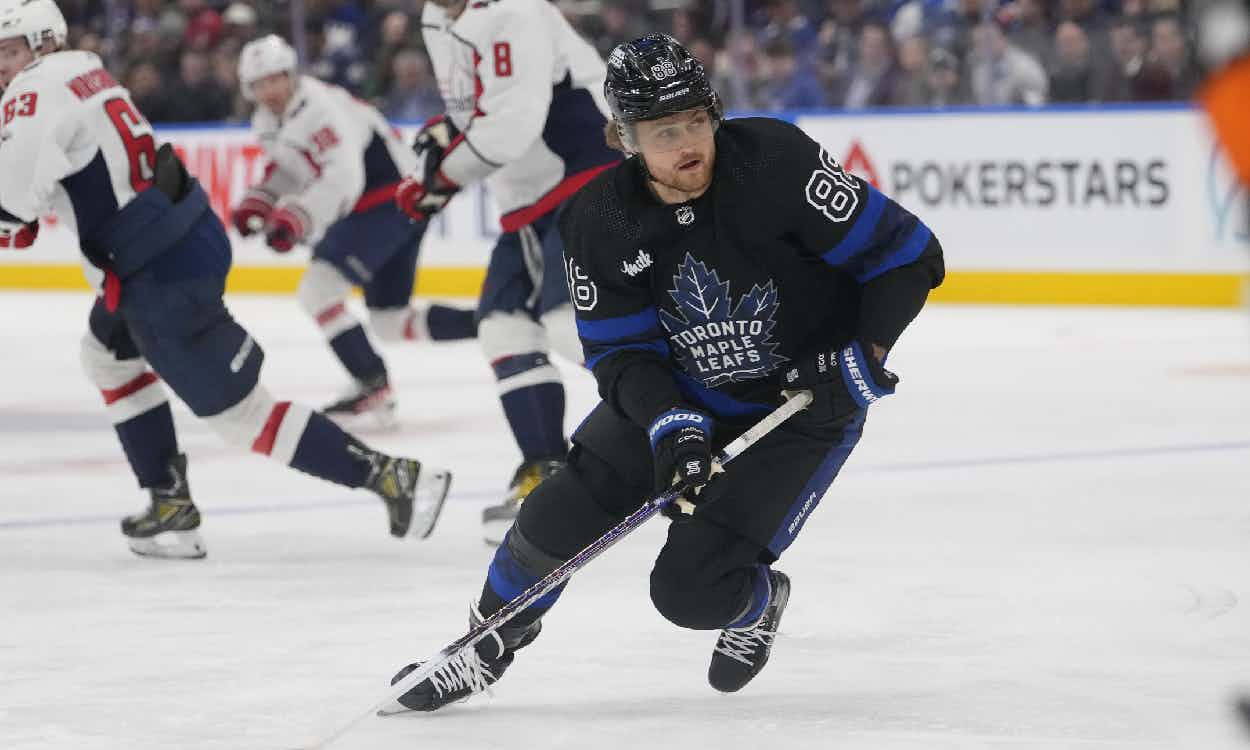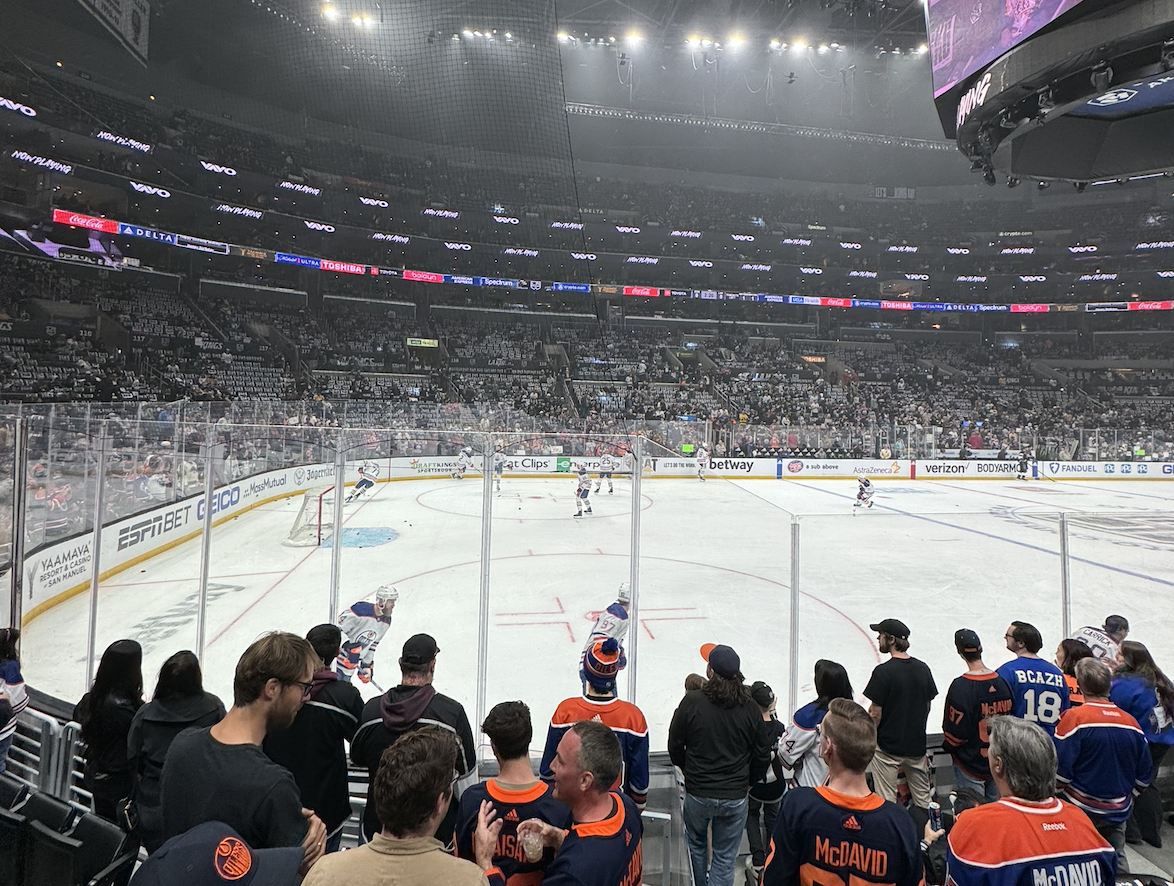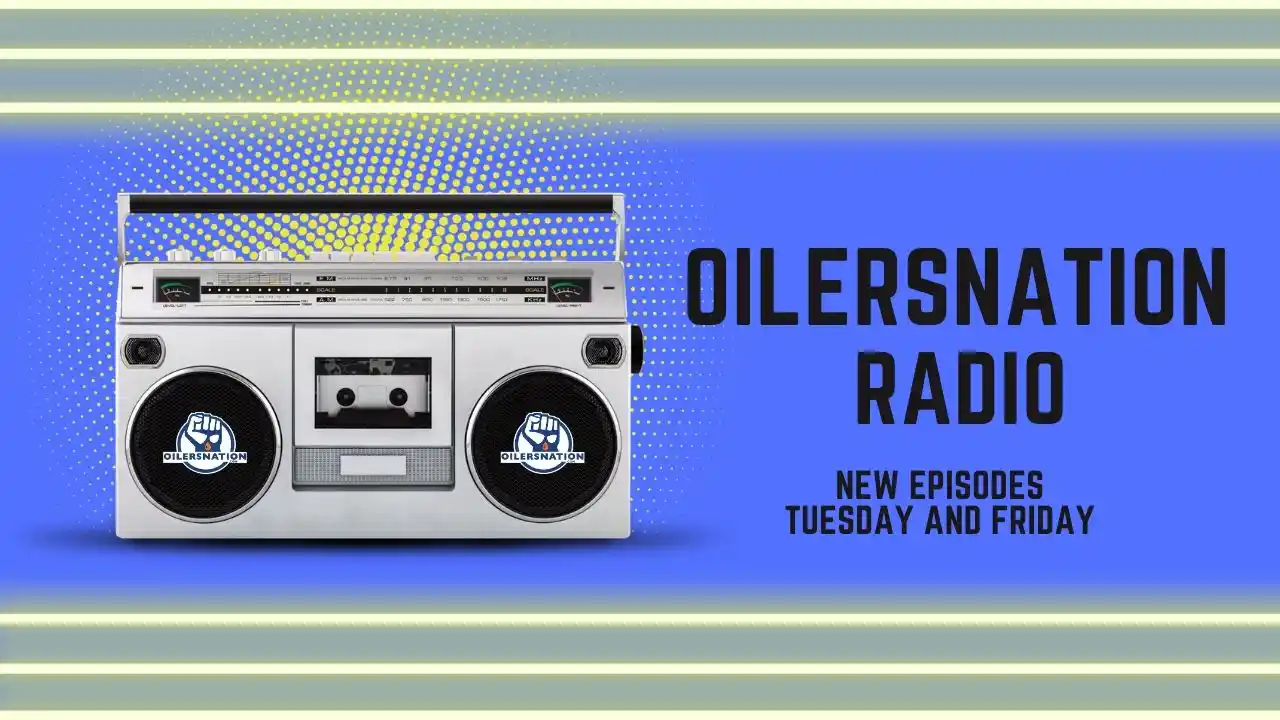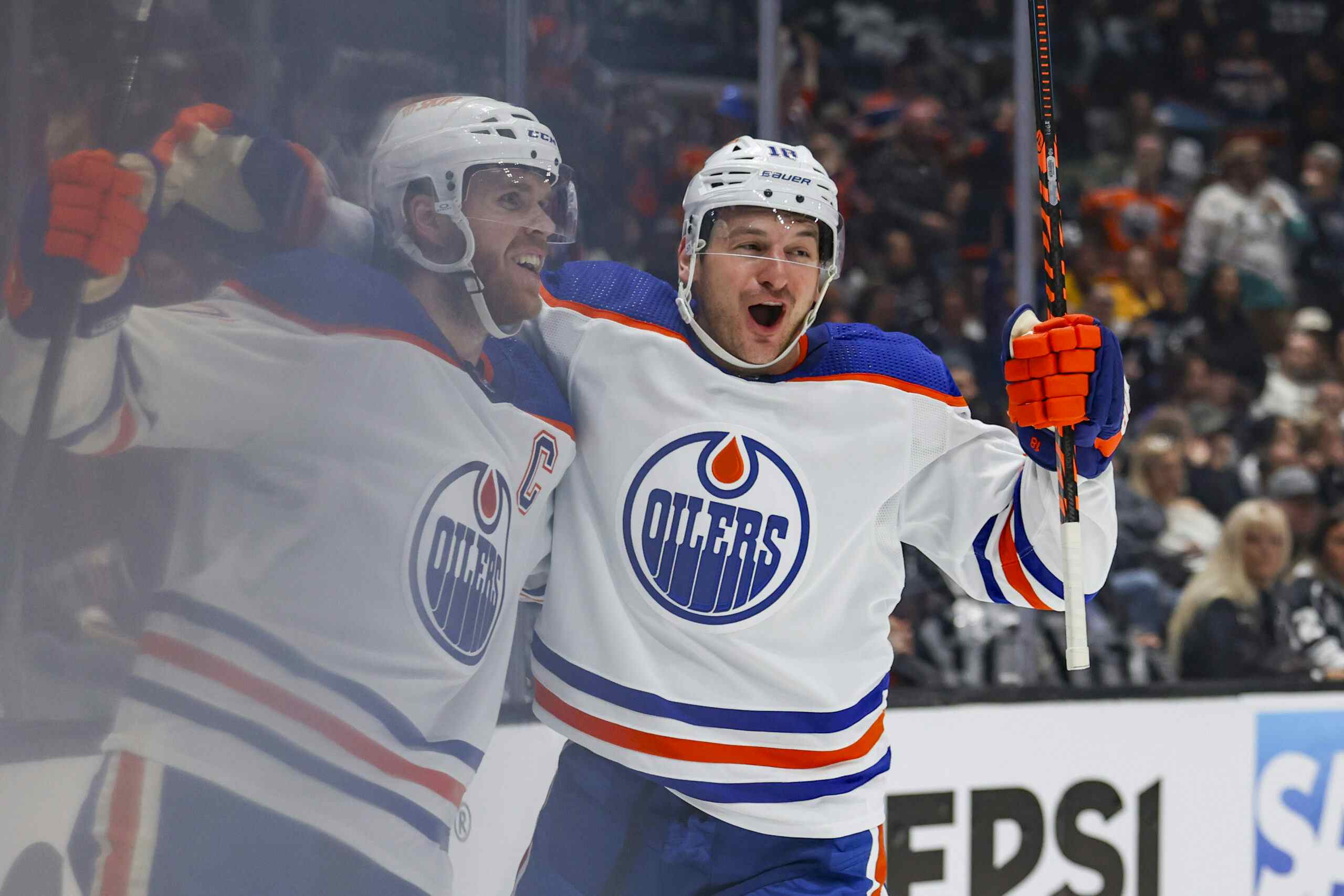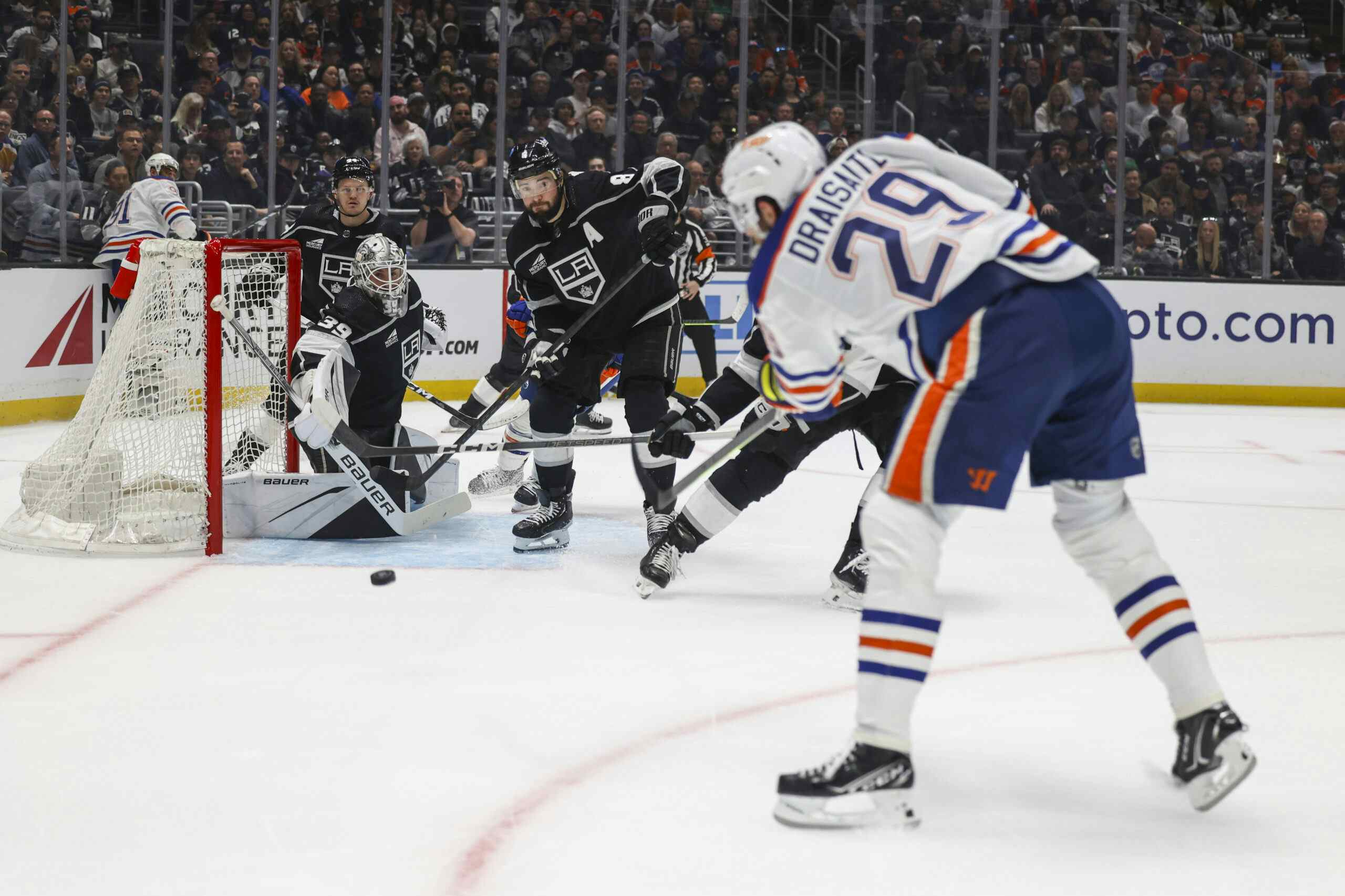What kind of game have Dallas Eakins’ Toronto Marlies played in the AHL?

With Dallas Eakins widely expected to be named as the Oilers’ new head coach today, his work in the AHL is of obvious interest to Oilers fans. What kind of style did they play? What were they good at? What could have been improved on?
The Overall Record
| Season | W | L | OTL | GF | GA | SF | SA |
|---|---|---|---|---|---|---|---|
| 2009-10 | 33 | 35 | 12 | 193 | 261 | 2637 | 2467 |
| 2010-11 | 37 | 32 | 11 | 228 | 219 | 2765 | 2481 |
| 2011-12 | 44 | 24 | 8 | 217 | 175 | 2605 | 2123 |
| 2012-13 | 43 | 23 | 10 | 237 | 199 | 2410 | 2093 |
| Total | 157 | 114 | 41 | 875 | 854 | 10417 | 9164 |
Unsurprisingly, Eakins overall AHL record is quite good. The team has run up an impressive shot differential in all four of his seasons as head coach (a note on the shot totals: the AHL doesn’t record them by team, but they do record them by player – these are the sums of all shots taken by players in their games for the Marlies, and the sums of all saves of their goalies plus empty net goals against) and in three of the four years that worked out to an impressive goal differential. In Eakins’ lone poor year as an AHL head coach it’s worth noting the team went 14-10 in games where James Reimer (0.925 save percentage) recorded the decision and 19-37 in games where Adam Munro, Joey MacDonald or Andrew Engelage (0.905, 0.893 and 0.860 save percentage, respectively) recorded the decision.
Eakins teams win games by keeping the goals-against low, rather than by out-scoring the opposition.
Goal Differential
| Season | EV+ | EV- | PP+ | PP- | SH- | SH+ |
|---|---|---|---|---|---|---|
| 2009-10 | 132 | 174 | 50 | 14 | 73 | 11 |
| 2010-11 | 168 | 158 | 54 | 14 | 47 | 6 |
| 2011-12 | 158 | 134 | 49 | 4 | 37 | 10 |
| 2012-13 | 167 | 137 | 61 | 8 | 54 | 9 |
| Total | 625 | 603 | 214 | 40 | 211 | 36 |
Goal differential gives us an inside look at where Eakins teams have excelled and where they have struggled. At even-strength, the Marlies started poorly in his first year but have steadily improved; 2012-13 saw them record a new high of plus-30 at even-strength.
Special teams have been a wash – mostly because Eakins has coached a brilliantly successful penalty kill and a stubbornly impotent power play. Twice he’s coached the best penalty kill in the AHL; three times he’s coached a bottom-five power play. Additionally, his penalty killers tend to score goals while his power play units tend to be scored on.
What About Player development?
Eakins gets solid marks in this department. Lowetide wrote a very nice piece on him yesterday; I’m going to quote two paragraphs:
Did the kids flourish under him with the Marlies? God yes. It has to be the number one reason he got the Oiler job. The list of players who adjusted quickly under his coaching and took steps forward is enormous for a coach with such a short (4 years in the AHL) resume… Is the total (16 players) good for 4 NHL seasons? Outstanding. Leafs certainly improved their chances by being aggressive in trades and college free agency but even with that the procurement and development department were certainly firing on all cylinders. During the same 4 seasons, the Oilers sent Devan Dubnyk, Theo Peckham, Teemu Hartikainen, Linus Omark, Jeff Petry, Justin Schultz. That’s 6.
How Is He as a Fit for the Oilers?

There is a lot to like about Dallas Eakins, and his strengths seem a fit for Edmonton. The Oilers have a long track record of being brutalized 5-on-5 and were especially bad last season; Eakins should have some ideas on how to fix that. The Oilers’ penalty kill, while improved of late, is looking at significant veteran losses (Horcoff, Jones, Petrell) in the off-season and despite decent percentages allowed more shots this year than last; Eakins has run a team with a very strong record of killing penalties. The Oilers have a very young core; Eakins has both success and experience as a developmental coach (he was also director of player development for a year in Toronto between coaching gigs).
The one area of concern is the power play. The Oilers power play the last two years has been quite effective, but much of that effectiveness has been based on converting a high percentage of shots rather than on generating a high volume of shots – and so there is good reason to be skeptical about how good it is. Certainly, the Oilers have a wealth of talent – far more than the Toronto Marlies – but there is little reason to believe that power play coaching is one of Eakins’ strengths. That’s far from a death-blow to his candidacy as head coach, but it does suggest that bringing in an assistant or associate coach with a history of power play success could be a wise move.
Recently around the Nation Network
Jeff Veillette offers an incredibly detailed breakdown of Dallas Eakins work with the Marlies – and the Oilers’ long-term interest in the coach – at Leafs Nation. I’ll quote his summary, but the whole piece is well worth reading:
Dallas Eakins has put in lots of time with the Leafs organization and on the Toronto Marlies, and produced some pretty impressive results. The farm system is in arguably the best shape it’s ever been in, prospects are developing more successfully and more well rounded. He’s a guy who cares about having everybody around him striving to improve. It would’ve been nice to see him stick around (I’d honestly rather have him up with the Leafs than Carlyle, but that’s a topic for another day), but the Oilers are the team that wanted him, the type of team he wanted to join, and probably a match made in heaven. I wish him only the best, and know that he’ll accept no less than that as he takes a once-great franchise and tries to bring them back to where they used to be.
Click the link above to read the whole piece, or feel free check out some of my other pieces here:
Recent articles from Jonathan Willis

